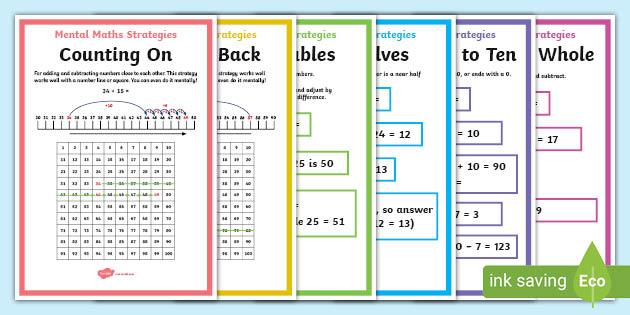Title: Overcoming Challenges: Developing a Mental‚Äč Framework for Navigating Difficulties
In todayS intricate landscape, people often encounter unforeseen‚Ā§ obstacles that can disrupt their plans, induce stress, or even‚ĀĘ jeopardize their overall well-being. From ‚Äčcareer-related disappointments to personal crises, ‚Ā§the capacity to effectively manage and navigate through‚ÄĆ turbulent times is not merely advantageous; ‚Ā§it has become essential. Recent research‚Ā£ highlights that‚Ā§ a thoughtfully‚Äč constructed mental framework can profoundly influence one‚Äôs response to adversity, bolstering resilience and empowering individuals to discover ‚ÄĆpractical solutions ‚ĀĘto their challenges. This article delves into‚Äć actionable strategies and expert perspectives on building a‚Ā§ mental approach‚Ā£ that ‚ĀĘequips individuals to assess situations critically, respond appropriately,‚Äč and ultimately triumph over‚ĀĘ difficulties‚ÄĒtransforming barriers into avenues for personal growth. As we explore ‚ĀĘthe psychological ‚Äćfoundations of resilience and the tactics‚Äč that facilitate triumphant navigation through hardships, we will uncover how nurturing a‚ĀĘ proactive mindset can set the stage‚Ā£ for ‚Äćrecovery and success amid life‚Äôs myriad‚Ā§ challenges.
Recognizing Psychological ‚ĀĘTriggers ‚ÄčThat Lead ‚Ā£to Challenges and How to Address Them
Human‚Äć behavior is frequently‚Ā§ enough influenced by ‚Ā§an intricate‚ĀĘ web of psychological triggers that may lead us into challenging situations. Emotional reactions,‚ÄĆ such as ‚ĀĘanxiety or fear, can cloud our judgment and ‚Äćlead us toward impulsive decisions.‚Äć For example, when confronted‚Ā£ with pressure, individuals ‚Ā£might resort to ‚Äć defensive behaviors, such ‚Äćas withdrawal or aggression‚ÄĒactions that tend only to escalate conflicts rather‚Äć than‚Äč resolve them. Identifying these triggers is crucial; they‚Äč may present‚Ā£ themselves through physical symptoms (like increased heart rate or muscle tension) or cognitive distortions (such‚Äć as catastrophic thinking). understanding these underlying‚Äč factors not only clarifies our actions but also empowers us to respond with ‚ĀĘintention instead of impulse.
Effectively managing these emotional responses requires a‚Äć combination‚Ā£ of self-awareness ‚Ā§ and strategic coping mechanisms. Practices like mindfulness meditation, deep-breathing techniques, or journaling can substantially help ground oneself before‚Äć making critical‚ÄĆ decisions.Moreover, cultivating a robust ‚Ā§ safety net of support from friends‚Ā£ or family members can enhance emotional management ‚Äćcapabilities.‚ÄĆ The following table outlines straightforward strategies tailored for various psychological triggers:
| Trigger | Adequate Strategy |
|---|---|
| Anxiety | Meditation practices focused on breath control. |
| Panic | Cognitive-behavioral exposure methods. |
| Irritation | Diversionary activities (e.g., physical exercise). | < td>Simplifying‚Äč tasks into smaller steps.< /tbody> |
Practical Strategies for Regaining Control in ‚Ā£Challenging situations
The implementation of effective techniques when faced with tough ‚Äčcircumstances is vital in regaining control over one‚Äôs ‚Äčsituation.‚ĀĘ A fundamental strategy involves taking time out‚ÄĒa momentary pause for assessment. By allowing yourself space to breathe deeply while‚Äč evaluating the elements at play in‚Ā£ your situation helps prevent‚ÄĆ hasty choices which could exacerbate your issues further down the line.‚Ā§ Additionally,< strong setting clear prioritiescan direct your actions effectively; concentrating ‚Ā§on immediate ‚ÄĆconcerns allows you conserve energy while addressing pressing matters efficiently.
Consider creating an organized ‚ĀĘlist breaking down tasks into manageable components:
- <
li >Identify core issues
- < li >Collect relevant information
- < li >Explore potential resolutions
- < li >Execute chosen solutions
- < li >Evaluate results & adjust accordingly
A powerful ‚ÄĆmethod worth adopting is fostering a ‚Ā§strong sense of< strong growth mindset. This perspective encourages learning‚Ā£ from‚Äć experiences rather than viewing‚Ā£ setbacks solely as failures; it transforms obstacles into‚Ā§ opportunities for growth.
Engaging‚Ā§ in constructive conversations‚Ā£ with peers or mentors reinforces this mindset by ‚ÄĆproviding new‚Ā£ insights along‚Äč with encouragement.To‚ĀĘ illustrate how mindset‚ÄĆ influences coping strategies further,
the table below‚Äć summarizes different‚ĀĘ attitudes alongside corresponding actions:
| < th >Action | |
|---|---|
| < td Avoid change & resist challenges | |
| < ‚Äć td Embrace challenges & learn from setbacks |
The submission of these‚Äč techniques enhances your ability handle adverse situations calmly while maintaining confidence‚Äč throughout each step taken towards resolution.Final Thoughts on Navigating Adversity Successfully
Navigating life’s hurdles necessitates not just‚Äč determination but also an effective mental framework.Whether confronting‚Äć personal dilemmas‚Ā§ or professional roadblocks,
grasping available psychological tools provides significant leverage‚Ā§ against adversity.
By nurturing resilience through self-reflection coupled with ‚ĀĘseeking ‚Ā£external support,
individuals are empowered redefine their relationship towards hardship emerging stronger than before.
As discussions‚ĀĘ surrounding mental health gain traction within‚Äć society‚ÄĆ at large,
the importance placed upon proactive approaches cannot‚Ā§ be overstated;
remember‚ÄĒthe path away from‚Ā§ trouble may be‚Äč littered with ‚Äćobstacles yet armed equipped solidly crafted strategy leads ultimately toward growth renewed prospects ahead!








